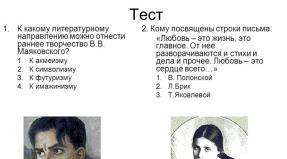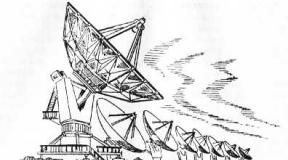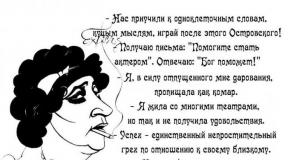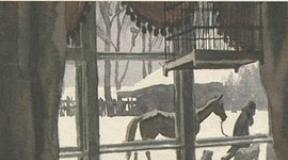Case education of loyalty. Application of cases to assess the managerial competencies of managers. Case “Unsuccessful repair?”
Often, before training employees, we need to understand the true request. In what way is it true? The one that will bring results - the Company, the employees themselves. We use different methods - interviews, questionnaires, etc. etc., but one of the most effective ways is to solve cases. Specific tasks that are similar to the job responsibilities of an employee. This method allows you to get deeper into the current knowledge of employees, as well as their areas of growth.
In addition to the evaluation function before training or as a stand-alone event, case studies are widely used as a development tool. During the training itself, they are actively used to develop the acquired knowledge. Participants solve problems, then they can compare their answers with those offered in the case and see their resources, as well as further horizons for development. One of the advantages of case studies is a very easy and clear transfer of practical experience gained to further real professional activity.
These ready-made cases are designed for managers and allow you to develop important managerial competencies.
So, cases can be used:
as an assessment tool
as a tool for organizing practice during training
as a simulator for self-development of competencies
as practical tasks in the course of individual training with a mentor
This methodology of ready-made cases takes into account the level of the manager to whom it is offered. Thus, this material is divided into three levels:
operational management (line management level)
operational and strategic management (heads of departments)
strategic management (positions of top managers and heads of large divisions)
Competencies that evaluate and develop each of the three cases:
1. Operational management:
employee motivation
Dealing with the emotional state of employees
Responsibility in decision making
Delegation skills
feedback skills
2. Operational and strategic management:
employee motivation
Broadcasting unpopular decisions
Delegation skills
feedback skills
staff development
team leadership
the ability to assess risks on a large scale, within the Company
3. Strategic management:
employee motivation
Broadcasting unpopular decisions
Delegation skills
feedback skills
staff development
team leadership
· Ability to work long-term
systemic thinking
the ability to assess risks on a large scale, within the Company
Market knowledge
Each competency is evaluated according to a 5-point system, which can serve as a guideline in the analysis of the finished work of the participants, as well as in the course of self-analysis and discussion of the results of solving the case at the training.
For use in the training, you can use part of the tasks of the case, which reflects the material analyzed during the training. Each case has several tasks, each of which corresponds to the competencies described above.
In addition, each case has an example of a response from a real leader. You will be able to get acquainted with how employees in managerial positions solve the case and predict the course of the training or evaluation procedure.
Each completed case includes:
a detailed description of the case itself
Required stimulus material
a table with evaluation criteria and score breakdowns
an example of a response from a real manager
The cost of cases for managers:
for individuals, each case is 5,000 rubles, for legal entities, each case is 10,000 rubles
1 - We guarantee that according to our method of ready-made cases, even a novice trainer will evaluate or competently organize practice during training.
2 - Buy ready-made techniques while their prices are too low, it's profitable. Prices for finished products are rising every year.
3 - Invest in your professionalism and earn.
Description: The group is given information in the form of facts based on a real situation and is asked to discuss problems, analyze issues and make recommendations. The case teaches you to make decisions or practice a new skill based on the analysis of input information. The case is created by the trainer in advance based on the information obtained during the preparation of the training. You can also use ready-made cases. Or adapt the finished case to the needs of the training.
Impact on group dynamics:
Raises: incomprehensible instructions, the presence of the correct answer and its search, “boosting” with time, comparison with others, the wrong time for the case (when there is no leader), the topic is far or not clear, a sharp topic, little time, lack of information.
Reduces: familiar topic, hints, jokes, unboxing, multiple solutions.
Number of participants: group no more than 10 people
How to create a training case with the help of participants?
The group is divided into subgroups of 5-10 people.
 Step 1 - The group is given a task
Step 1 - The group is given a task
Task: Describe a case from your experience regarding this topic. ( For instance: a month ago, in our department, such a situation happened ...”)
Case requirements:
- must be based on a real situation
- the task (problem) around which the analysis is built is clearly defined. For example, the topic: “Methods of non-material motivation of personnel
The case must contain the following items:
- places, positions and roles of the main actors. For example: director, employee, etc.
- a brief description - only the facts - of the main stages in the development of events and actions of the actors. For example: “You are the new development director at the company. The company is entering a new market, you have been given a task…Employees react in such and such a way”
Step 2 - Groups change with descriptions of situations
Task: Think over a solution to this situation, write options for solving this situation and justify the chosen actions.
Step 3 - Presentation of Solutions and Evaluation of Solutions by Group

So the group that created the case gives feedback on the proposed solution.
Once, I conducted a training "Creativity in business" for the company Ingosstrakh. And there I used the case method. Try to solve it and you, only without this "Google help".
Can you solve the case in 1 minute?
So, the case is called “Gallery Lafayette”, and it is based on real events.
A young entrepreneur at the initial stage of the formation of her business did not have enough funds for traditional methods of promoting goods to the market, she creatively approached solving problems and achieved her goal in very cheap ways. Once she came to conquer Europe, and the manager of the Parisian Gallery Lafayette refused to buy her products - new perfumes. But she never gave up. When our heroine wanted something, she was very resourceful in trying to get her way. The woman nevertheless found a way in 5 minutes to prove to the manager that her perfume can take its rightful place in the prestigious Lafayette gallery.
What did the woman do? What are your options?
And this is what she did. The lady suddenly opened her purse, took out a large bottle of some yellowish liquid and slammed it on the floor with a flourish. After a few minutes, she could not fight off the questions: “Yes, this is my new perfume,” she repeated, beaming with a smile. “This is Youth Dew, and my name is Estee Lauder. You never heard my name"
Examples of cases for training onEmployee management (motivation, mentoring)
An example of a sales case "Customer profile"
Case №1 "Development of methods of influencing an employee"
Based on the analysis of the situation, analyze the reasons for the change in Y. Malevin's behavior. Develop ways to influence Malevin to change his behavior. Fill in the table “Assessing the causes of behavior”
Description of the situation:
Y. Malevin has been working at Tri Kita LLC since 2009 as a refrigeration equipment technologist. During his work, he was noted three times for the high quality of work and was regularly paid bonuses at the end of the year. However, over the past year, Y. Malevin's relationship with his colleagues has become strained. He had never been particularly talkative in general, but now he demanded that his colleagues stay away from his workplace. Y. Malevin made it clear that his tools were disappearing, and he wanted to secure his workplace. The quality of his work has also deteriorated. Approximately a year ago, the devices produced by him were evaluated as completely defect-free products. At present, with selective control, it turned out that his products require alteration in three cases out of a hundred. Thus, the defect rate in his work rose from zero to 3%. Among his colleagues, marriage does not exceed 1.5%.
The behavior of Y. Malevin caused concern among the leaders of the unit. A good worker has turned into an average worker. What could have caused Y. Malevin's behavior to change?
Using the table. 2. Choose from the list of possible reasons for the change in behavior, rate them on a 7-point scale and comment on your ratings.
Table 2. Assessment of the causes of behavior 
Comment on each of your ratings.
What can a manager do? Fill in the table. 3
Table 3. Interventions for behavior change

Source: "Organizational Behavior" by G. R. Latifullin
Case No. 2 "Employee selection"
Description of the situation: You are the Manager of five gas stations of the Lesnoy Gorod company in city N. One of your gas stations is Green Cedar. It has the maximum traffic among your other gas stations. In this regard, the workload on the staff is quite large. If you still have tankers, as they generally receive good tips, then your cashier turnover is quite high. So you are faced with the task of finding and evaluating a candidate for the position of a cashier, since you do not have enough of them. The situation is further complicated by the fact that the Green Cedar gas station has a mini-market with an open display, so the cashiers have a lot of tasks, but they do not receive tips. In addition, the functionality of cashiers is wider than in other fuel companies, so it can be difficult to find a good candidate.
The functional responsibilities of the cashiers of the company "Forest City" include:
- Customer service at the checkout;
- Acceptance of goods;
- Control of expiration dates of goods;
- Participation in the inventory of goods;
- Implementation of the sales plan for promotional products;
- Cleaning of premises (floors, shelves, toilet, etc.)
Working conditions: schedule 2/2 a month a day from 9 a.m. to 9 p.m., a month a night from 9 p.m. to 9 a.m. (on
arrangements with the manager of the gas station are possible only on the day or only at night). As a manager, it is more convenient for you so that the cashier can go both day and night.
Task: Think, please, and write a candidate profile for the vacancy of a cashier at the Green Cedar gas station in the Forest City company. What characteristics and competencies (knowledge, skills, personality traits) should he have in order to successfully work as a cashier at your gas station
Case #3 “Retail Store”
Description of the situation: Seller Petrova A.K. has been working in the department for one year. During her work, she managed to sufficiently master the assortment of the department, establish friendly relations with the team of employees. By nature, calm, balanced. He treats work responsibly, shows a desire to work in a store. However, he does not show initiative in communicating with customers. She responds to questions, requests for help in choosing a product, is friendly, but tries to keep this communication to a minimum. With greater enthusiasm, she is engaged in arranging goods, maintaining cleanliness and order in the trading floor, in connection with which potential buyers are often ignored by the seller and leave.
Exercise: think over and compose a motivational conversation with an employee of Petrova A.K. to show initiative in communicating with customers.
Case number 4 “Pharmacy”.
Description of the situation: Pharmacist Vasilyeva N.N. has been working in a pharmacy for a long time. Well versed in the range, active in communicating with customers. Most often takes the position of "adviser". He has his own idea of what drugs are preferable for children, insists on his opinion, evaluates the choice of the buyer.
Exercise: think over and compose a motivational conversation with an employee Vasilyeva N.N. to implement its main function - to sell goods based on the needs of the buyer.
Case No. 5 “New employee”
Seller Ilyina M.K., 19 years old. The company is on probation. I like the opportunity to communicate with people in my work, I am interested in gaining experience as a seller, I am proactive in working with buyers.
He systematically violates the requirements for the appearance of the seller (youthful style, open parts of the body), citing the fact that he does not have the means to update the wardrobe, he refers to the low salary.
Exercise: think over and compose a motivational conversation with an employee Ilyina M.K. for compliance with the requirements for appearance standards. Sales training cases
Books
We continue to publish author's cases (), exercises for trainings in negotiations, personnel management, managerial fights. These are unique developments that have been tested in the largest companies in the country. Business coach, managers of corporate training centers successfully use them in their practice.
Download over 100 negotiation training cases! Leave your email address.
Topic "Coaching"
Manager
Study the attached situation and prepare for the meeting with Oleg.
You must decide for yourself:
- What approach is better to choose in a conversation with Oleg? TALKING, SELLING, ADVICE or CONSULTING?
- Let's say you choose counseling. How are you going to do it?
- What will be your approach to Alexander?
You will have approximately 10 minutes to prepare and 10 minutes to meet.
DESCRIPTION OF THE SITUATION
Two of your employees were up for promotion, but only one was promoted.
Alexander is a highly motivated, capable and highly paid employee: in fact, he is a possible future replacement for you, given the strong impression he made on the Managing Director during his short time with the company.
Alexander recently joined the company with experience in the consumer goods field and started very abruptly, which, in other respects, does not bother him very much. The promotion system in the company has recently changed and now the management does not care much about how many people have worked in the company - the main emphasis is on intellectual abilities. The new system works in favor of Alexander, who got through the promotions board the first time.
Oleg,on the other hand, it failed deafly. Although his employment records and education are less impressive than Alexander's, he is nonetheless by no means devoid of acumen and has certainly worked very hard and effectively for the company over the past 20 years in a variety of positions. You often consult with him and he "grew up" before your eyes; he never resented appointments to positions that might have been his.
Now Oleg will work under the leadership of Alexander.
Both remain under your control.
You yourself did not choose who to appoint to a new position: all questions about appointments go through an independent evaluation scheme over which you have no influence.
DEVELOPMENT OF THE SITUATION
Oleg came to your office and asked to talk. You are busy at the moment, but you believe in the open door policy, if there is a reason, and ask him to come in.
After a short preamble, Oleg said that he was mortally disappointed that he missed the opportunity for promotion. You sympathize, but be careful - for you, this result was not a surprise. Oleg is a good, balanced worker, but he has no vision for the future and lacks the potential for management skills; he is happy when he is told what to do. If Alexander knew how to interact with him, and Oleg would be prepared for the perception of Alexander, they would actually make an effective team.
Then Oleg began to blurt out that it would be very difficult for him to work with Alexander. Having said this, he began to gain momentum and bring more and more arguments, and at some point you realized that it was useless to stop him. Oleg said that he had nothing against Alexander's youth and comparative inexperience, and he would be ready to work under him if he were more human. However, he finds Alexander arrogant, contemptuous, and never ready to listen. Oleg cannot imagine that Alexander will make the right decisions or will be ready to listen to counter-arguments.
In general, Oleg decided that he could not work under Alexander.
SITUATION FOR THE OBSERVER
Your role is to carefully watch a role-playing game involving a Manager and a Subordinate and answer the following questions:
1. Decide what approach the manager took in this meeting. Was it a consultation? If not, what was it?
2. Comment on how the manager followed the six step plan. Did he use everything? What did you forget to do?
3. Comment on any specific counseling skills that have been demonstrated. What did the manager do right? What could be improved?
4. If you were in Oleg's position in this situation, how would you feel after this meeting?
5. Did the manager display leadership qualities in addition to or apart from counseling skills? How?
Topic "Negotiations in Sales"
Case “Mountain Thorn”
At the Swiss ski resort "SHIP" a ticket for the whole day costs 40 euros, a ticket for half a day costs 22 euros. A tourist who bought a bidet for the whole day was summoned by an urgent call to important business negotiations. He is an experienced negotiator and does not want to just lose money. At the entrance to the resort, he meets a man who wants to buy a ticket for half a day. He proposes to negotiate. As a couple, decide who has arrived and who needs to leave the resort. You have 6 minutes to negotiate. So, what price do you agree on?
The topic is "Customer Conflict".
Case "Supply of equipment"
The manager was on a long business trip. Upon arrival, he learns that the manager has entered into an oral agreement with equipment suppliers and is waiting for the manager to sign the agreement. Equipment prices are high and out of the planned budget by 10%. The manager needs the equipment to be on time, but the prices are not above the budget.
Supervisor: You refuse to sign the contract and ask to find another supplier that will meet the budget.
Manager:You had a task to deliver the equipment within 10 days. You have found a company that can quickly carry out production and delivery. Because time was limited, you settled on a company with which you have worked more than once and which has proven itself well. Your task is to maintain a good relationship with the manager and deliver on time. Finding another supplier in such a short time is unrealistic. For failure to meet the delivery deadlines, you are threatened with deprivation of the bonus.
Supplier representative:Your company, despite the absence of a written contract, has already begun manufacturing equipment, because the deadlines were very tight and the manager of the company - the customer asked to speed up the process. You are interested in making a delivery, because money has already been invested in the manufacture of equipment.
Case "Delivery at any cost"
The sales manager of a large company has found and is working on a client. The client has a complex structure: there is a plant with a logistics department and a management company responsible for purchasing. During the negotiations, you managed to reach an agreement with a representative of the management company, they are ready to conclude a supply contract. However, at the plant itself, you are perceived with hostility, because the plant employee apparently has plans for another supplier.
Manager: wants to conclude a contract, agree on the first delivery.
Head of Purchasing Department of the management company: wants to conclude a contract, organize the delivery of goods, ensuring the operation of the plant, on time.
Head of the department of material and technical supply of the plant: wants to conclude an agreement with "their" supplier, to receive additional. profit.
Theme "Great Service"
Case "Very hot water heater"
Alexander Fedorovich buys a water heater "A". After some time, namely 3 days after its installation, it explodes, and the owner of the water heater barely escapes from severe burns. Alexander Fedorovich takes the damaged item to a service center, but the director of the center refuses to accept a replacement item. In this case, the dispatcher understands the fault of the manufacturer and the responsibility of the store that sold the goods.
Alexander Fedorovich:he needs to replace the goods or receive his paid money.
Director: in no way wants to understand this situation, and is not going to take any steps to constructively solve this problem
Dispatcher: understands the seriousness of this situation and tries to convince the director to resolve this issue without bringing the matter to court.
Case “Unsuccessful repair?”
Service station Garantiya 2.5 months ago repaired the engine to a regular customer of Perevozchik LLC, the owner of a Gazelle car, with a 3-month warranty. After 2.5 months of operation of the car by the driver of the Repair Customer, oil pressure was lost, the engine broke down again. The customer filed a claim with the repair manufacturer about the low quality of the repair. STO conducted an independent examination of the quality of repairs, the results of which STO Director invited client(Customer of repair - a permanent, key client of this service station) and service station masters(who has been working at the service station for a long time and has established himself as a highly qualified specialist) to resolve the issue of further repair of the engine of the Gazelle car.
STO director:is interested in retaining a key client that brings 30% of the service station's income. Never lose a client! At the same time, he is confident in the professionalism of the service station master - it is difficult to find such professionals in the labor market. The master never let me down, he always professionally copes with orders. Surely the problem is not in the quality of the repair ...
The director is ready to provide the client with a 20% discount on the repeated repair of the Gazelle car.
Service station master:dismantled the engine of a broken car and found out that the repeated breakdown occurred due to improper operation of the car: the oil was not topped up on time, it did not change during operation, and, probably, the car was filled with fuel not intended for this brand of car. It is important for the master to defend his professionalism, correctness, and to protect the quality of the work performed by his department. At the same time, he understands that there is no point in losing such a Client.
Customer: understands that the newly adopted driver of this Gazelle is, to put it mildly, a “teapot” and may have misused the car. At the same time, he insists on the terms of the guarantee - for a free re-repair. I do not agree to pay for the re-repair, but with certain facts and evidence from the service station, I am ready to pay 50% of the re-repair.
Topic "Negotiations in the team"
Musical conflict
The musical group "Vector" is forced for some time to be left without its leader, a very powerful person who usually made up the schedule of concerts, planned tours and negotiated with customers. During his absence as his deputy, he left the bass player without explaining his choice in any way. But knowing that the deputy did not have enough contacts to take orders all the working time of the group, in order to avoid downtime, he allowed the rest of the group to also accept offers of performances, coordinating them with the bass player. The rest of the band members are unhappy with this decision, the lead singer is the group's greatest authority, everyone knows that he is not only a professional, but also an excellent communicator, he has many connections in show business. And then an obvious situation happens - two orders at the same time. The order of a soloist is a very interesting, prestigious party, many famous people, the opportunity to reach a different level, because earlier the group performed mainly at youth discos, in bars, and sometimes it happened to work as an opening act ... The order of the bass player is quite large, several performances in different cities, it is financially more profitable for the group, and the leader upon arrival will certainly rejoice at the big profit. At this time, one of the members of the group, the drummer, receives a promising offer from another group, two of his friends work there, the head divides the profit more fairly, and the profit is one level higher - the group is promoted very well. He does not care how the "Vector" will do without his participation. The group meets at the planning meeting to discuss plans.
Bass guitar player: It is not surprising for you that the head left you as a deputy. For several years now, you have shown him your loyalty so that he will begin to share the profits from the concerts with you, and not just pay a salary. You have not yet achieved your goals, but you feel that if you implement your order, the manager will be able to appreciate this and will take you to share. You also need to maintain a good attitude towards yourself in the group, you would not like to be discussed in the same way as the leader in his absence.
Soloist: You are known among your acquaintances as a person of creativity, to whom everything earthly is alien, and this allows you to make good deals - suspicions never fall on you. You were invited to play at a party by a friend who arranges a holiday for her friends. She offered to pay you personally b O most of the amount, and with the group to share only $ 1000 for everyone. You think that this is fair, especially since the group definitely needs PR, and there will be many famous people at the party.
Drummer: You are tired of fighting for orders, your talent is not appreciated, you are paid little. You have firmly decided to leave for another group right now. The friend who invited you hints that a bass player would also be useful to their band and offers a nice bonus if you bring him along as well.
Topic "Effective sales. Negotiations with clients"
Lukoil is a long-term partner of the DorStroySam road construction organization and provides 100% of the fuel supply for the client's needs.
Gazpromneft-Regional Sales sells 30% of the fuel to DorStroySam with a delivery service, the client picks up the remaining 70% and delivers it to the facilities on his own. The client cannot transport the entire volume of oil products on its own due to a shortage of fuel trucks.
One day sales manager at Lukoil informed the Director of Logistics "DorStroySam" that from next month they can use a unique comprehensive service. The essence of the service is that in addition to the usual delivery of fuel, the client receives a full range of logistics services: development of optimal transportation routes, dispatching fuel residues at facilities, planning delivery schedules, etc. But the main thing is the guarantee of fuel supply 24 hours a day, 7 days a week. The cost of the service is 20% higher than the usual delivery, but can the feeling of confidence in the future be measured in rubles?
Two weeks have passed, and the manager has not received a response from the client. Seeing no other way out, the manager decided to contact to CEO(owner ) "DorStroySam”), and set up a meeting to discuss the proposal. Upon learning of this, the Director of Logistics insisted on his presence during the negotiations.
Role 1. Lukoil sales manager:
You understand that the offer is profitable, because the client's monthly costs for maintaining their own fuel truck fleet and a large staff of employees involved in supply and logistics are significantly higher.
Target: Persuade the client to sign a contract for the provision of complex services; agree on the transfer to a comprehensive service of at least 70% of the volume of fuel with the condition of transferring the remaining 30% to a comprehensive solution by the end of the year.
Role 2. Owner of the DorStroySam company:
The offer is interesting, there was nothing like it on the market before, and you are a big fan of everything new. However, when it comes to business, do not rush to cut off your shoulder. Do you think that the staff of the Directorate of Logistics has unjustifiably “swelled up” and it would not hurt to “cut it down” a little, as well as the cost of maintaining fuel trucks, a comprehensive solution is just in time. You can sell fuel trucks that have become unnecessary, get additional money in a crisis situation. But won't the company become too dependent on the fuel supplier?
Target: During negotiations understand the risks of the offer. Partially try to transfer transportation to a complex service on preferential terms. If this is really effective, in the future it will be possible to think about increasing this figure and selling our fuel fleet. Get additional benefits from the deal, for example, increase the discount from 300 to 500 rubles for the transportation of a ton of fuel by standard delivery.
Role 3. Logistics Director "DorStroySam":
They deliberately delayed the response to the proposal of the sales manager, because this threatens to reduce your service, and these are 30 people who have been in the company since the day it was founded, and you personally. In addition, you think that such a responsible matter cannot be trusted to outsiders, what if they let you down and do not fulfill the promise? You have concerns that the contractor may stop providing the service or increase its cost when DorStroySam sells its own gas station. And you don’t see any reason to sell it, the prices for used equipment have fallen sharply. You think that a new service can only worsen a well-established logistics scheme for years.
Target: Keep the old scheme of work. Propose to the director a new plan for the development of the supply service. Its essence lies in the purchase of several fuel trucks of the required format (refueling trucks) to ensure 100% independent transportation of fuel to construction sites. This is more profitable, but there is a crisis in the yard and it will be possible to achieve payback only after 2 years. We are sure that it is better to invest in business expansion and a long-term perspective than to get savings today and business dependence on GPN.
Case “Divide with justice”
You are the head of the sector, which includes 7 engineers. The sector received a premium for the past quarter. By decision of the higher authorities, you are given complete freedom of action in the distribution of bonuses.
The sector entrusted to you is engaged in the development of technology. In the reporting quarter, the sector performed successfully, which led to the accrual of bonuses. Engineers Petrov and Frolov throughout the entire quarter were engaged in laborious work - the preparation of documentation for technological processes. At the beginning of the quarter, engineers Titov and Popov completed the development of a set of technological documentation for one of the products. Smirnov proposed the idea of a significant reworking of one of the technologies, which makes it possible to increase the efficiency of production many times over, and the corresponding researches have been started. Frolov and Smirnov, in addition, searched for new promising technologies. At the end of the quarter, engineers Terekhov and Sedov worked perfectly, they have not slowed down even now.
When distributing bonuses, you need to take into account the contribution of everyone and try to ensure that the distribution of the bonus serves as a step towards the long-term success of your team.
Possible solutions:
1. Compared with other engineers, Terekhov and Sedov should be singled out.
2. Distribute the bonus equally among all employees.
3. Divide the premium into 2 parts: distribute the smaller one equally, the larger one between Frolov and Smirnov.
4. Compared with the rest, raise the percentage of premiums for Petrov, Frolov, Titov and Popov.
5. Divide the bonus fund as follows: Frolov - 30%, Smirnov and Petrov - 20% each, the rest - equally.
Please rate the proposed options in terms of the most effective solution to the problem:
Case for top managers "Related business"
For a long time, a logging company is run by a gray-hairedmain shareholder,he is the CEO. She has also been with the company for a year.young sonmain shareholder. Especially for him, a position was introduced into the staffing table - development director (part of the Financial Service). My father even gave away a 5% stake in the enterprise (the main shareholder had 75% of the shares). For about six months, a young man has a sluggish conflict withfinancial director(minority shareholder, owns 20% of the shares). He had already several times expressed dissatisfaction with the inexperience of the young man. There were objective mistakes - especially in the first half of the year.
In the last month, the conflict has entered a new stage. The development director insisted on a "tax optimization" scheme. The CFO objected, but the CEO agreed with his son. This point of view was even confirmed by the capital's consultants. As a result - problems with the tax, fines and courts. Losses - about 100,000 dollars. The cost of the enterprise is approximately 400,000 USD.
The CFO asks for a meeting.
Goals and objectives of the parties
1. Major shareholder.
He understands that his son is not yet ready to run a business. He still needs to learn. Maybe work for another company to gain experience. One thing is holding back - the father repeatedly promised his son that the business would pass to him. Feels guilty, does not want to pay money from his pocket.
2. Financial director.
He wants to squeeze out the director of development. I would like to appoint an employee-relative to this position (he has been working in the Financial Service for three years). He believes that the young director should pay the fine out of his own pocket.
3. Executive Director
wants to get out of the control of the CFO. He believes that it is the minority shareholder who puts the spokes in the wheels.
Topic "Negotiations with top managers"
Case "Rockefeller"
Standard Oil is an American monopoly that extracts and transports oil. It was established in 1870 with a starting capital of $1 million on the basis of Rockefeller, Andrews and Flagler.
In 1877, Standard Oil felt strong opposition from competitors. The Pannsylvania Railroad, alarmed by the construction of Rockefeller oil pipelines, regarded this as an interference with the existing oil transportation system.
In order to counteract Rockefeller, she begins to buy oil refineries and pipelines in order to oust Rockefeller from the roar by subsequent dumping.
Standard Oil gets involved in a price war that hurts the Pannsylvania Railroad's freight traffic and also causes unrest among workers in both companies.
Information for team 1
Are you company representative. Standard Oil, outside the window in 1877.
You were summoned by the owner of the company and instructed to sort out the difficult situation that has developed with one of the well-known players in the Pennsylvania Railroad market.
Your task:
Negotiate with a Pennsylvania Railroad representative and achieve the most favorable conditions for cooperation, both in the current situation and in the long term.
Information for team 2
You are a representative of the Pennsylvania Railroad, outside the window in 1877.
You were summoned by the owner of the company and instructed to sort out the difficult situation that has developed with one of the well-known players in the Standard Oil market
Your task:
Negotiate with a representative of Standard Oil and achieve the most favorable terms of cooperation for yourself, both in the current situation and in the long term.
To complete this task, you need to thoroughly study not only the essence of the conflict, but also immerse yourself in the history of the economy of that time. Find the strengths and weaknesses of all possible participants in this meeting.
Intrigue: There will be a third party present at the meeting, but you can only guess who it could be...
Information for team 3
You are a representative of the United States Antimonopoly Committee, outside the window of 1877.
Your boss called you in and instructed you to sort out the difficult situation that has developed between two well-known players in the market, Standard Oil and the Pennsylvania Railroad. In the near future there will be a meeting of representatives of these two companies, where you will be represented as a representative of an oil refinery. You have been ambiguously hinted that you cannot exert open pressure on these companies, since they have patrons at the highest level.
More than 20 complaints have already been received from members of the public and representatives of the oil refining market about violations of the rights to fair competition. You know for sure that the press is trying to find dirt on both participants in the meeting ...
Your task:
To prevent collusion and violation of the antimonopoly policy of the state without revealing its true status. Find an opportunity, convince your opponents to conduct honest business for at least the next 3 years ... and then we'll see ...
Case for determining the ability to build interpersonal relationships, the ability to work in a group and respect the point of view of another on this issue, readiness to interact and cooperate with other members of society, the group.
Personal qualities. project case. Case "Divide and work"
For what:
to assess social maturity:
- ability to build interpersonal relationships;
- the ability to work in a group and respect the point of view of another on a given issue;
- willingness to interact and cooperate with other members of society, group.
To whom to give the case: candidates for positions at any level.
Situation
In the design department of the information company, two women worked as engineers - Anastasia M. and Elena I. They came to the organization at the same time, but the style of their work was very different. Anastasia was extremely conscientious, punctual and demanded the same from her subordinates, besides, she did not refuse unscheduled work.
Elena, in turn, worked unstably, her periods of activity alternated with mood swings and performance, she complained of pressure, palpitations, but she never went to the hospital, explaining that she did not want to lose her salary. The leader always made concessions to her, knowing that he could rely on Anastasia. When Elena refused small assignments or once again referred to poor health, the head of the department transferred part of her work to Anastasia.
The reason for the first clashes between the employees was the mistakes in Elena's work. Since Anastasia had to finish some of the work for Elena, she began to demand high-quality and timely execution. And although Anastasia expressed her comments and demands to Elena without witnesses, she made the incident a subject of discussion in the department. The conflict escalated into hostility of colleagues to each other. And their immediate supervisor, having decided not to get involved in women's affairs, at the first opportunity completely divided their functions and offered Anastasia to take another job in a neighboring department. Anastasia refused to perform other functional tasks and demanded that the manager transfer Elena to another department, since it was she who shied away from work and was to blame for the current situation.
Questions and tasks
Explain the position of the participants in the case. Who do you think has the most influence on the situation? Are there mistakes in the leader's decisions? Which? What should participants do to resolve the problem?
Offer the company a solution to the problem.
Comments
The situation described in the case is an example of communication problems. The position of the manager in relation to both employees can be considered as erroneous. The case seems to plunge the applicant into a conflict situation, where there are three different positions: a manager and two colleagues.
Interpretation of responses to case questions
|
Answer options |
How to interpret |
|
1. The applicant is of the opinion that Elena is the culprit of the conflict. It is against her that administrative measures should be directed. Or, at least, not Anastasia, but she should leave the department. |
Since we are talking about working in a team, sticking to one side is not quite the right position from the point of view of social competence, since this shows the inability to accept a different point of view and understand that the potential and abilities of each employee are different. In addition, there is no actual managerial position in the answer. |
|
2. According to the candidate, Anastasia herself is to blame for the fact that, as a result, her colleagues began to transfer the work to her. If she had immediately insisted that she had her own responsibilities, then such a situation could have been avoided. At the same time, the leader is absolutely right, whoever copes, he entrusts the work. |
Perhaps in itself it is right when an employee refuses to do someone else's work. But the fact that the candidate points to this may indicate his inability to work in a group, unwillingness to build communications in a social (working) environment in the way that collective activity requires. The correctness of the leader in this answer is debatable, since there is no explanation for the motives of this act. |
|
3. The applicant does not judge categorically about the actions of the participants in the case. Adheres to the point of view that Anastasia could simply help her colleague, and not do part of her work completely. And this should be a mutual decision of the three parties, which should be initiated by the leader. We can say that Anastasia is right, but at the same time, social and communicative immaturity is visible in her actions, as she reacts negatively to the manager's proposal to move to another department. |
There is no answer that could allow us to draw unambiguous conclusions. But there are decisions of applicants that clearly emphasize their position and show how developed certain social competencies are. In this case, we can say that there is a willingness to interact and cooperate with other members of society, a group, as well as the ability to build interpersonal relationships with colleagues. The flexibility of the position of the applicant is visible, but he does not demonstrate a desire to “get to the bottom” of the reasons for the manager’s decision: or maybe for Anastasia this is an opportunity for career growth. |
Competently designed cases for managers, taking into account the specifics of a particular production and position, will help you quickly obtain the necessary information about their professional competencies and personal characteristics. Using this method allows you to minimize errors in the appointment to managerial positions, which, as a rule, cost the company too much.
From the article you will learn:
Modeling test situations using cases and their analysis
When analyzing the responses received, several schemes are used. The simplest one is choosing the desired answer from a list of suggested options conflict resolution. The desired response in this case is one that can be considered quality work. Such a scheme is especially effective in training, when a person is explained why one should act in a particular way.
Another scheme is more complex, it should take into account how deeply and systematically a person thinks- can he offer several ways out of the situation, taking into account all possible options, or does he think linearly; whether he can predict the long-term consequences of his proposed solutions; whether he takes into account his strengths and weaknesses when making them. Most often, such an analysis of the solutions of specially designed cases is used to evaluate managers.
Some executive assessment cases are modeled in such a way that one can analyze the unconscious, spontaneous actions of the subject. Rather, it is an analysis of his beliefs and principles that he adheres to - they determine the response to the case, depending on the underlying metoprograms. Cases of this kind make it possible to identify value criteria and attitudes, as well as to get an idea of whether a person is oriented towards the process or the result; what is more important for him - following the procedure or seizing the opportunity.
How to effectively use case studies to assess leaders
Numerous cases for evaluating managers can be found on the Internet. But using them without adapting to the specifics of the enterprise and a particular workplace can lead to serious errors in personnel management. The subjects themselves have access to these cases, so they can easily give the correct, required answers, but in practice they will be completely unable to cope with their duties. To avoid such costly , the HR service of the company must necessarily adapt the ready-made texts or compose them on their own, prescribing in them specific situations that reflect the production processes or problems at this particular enterprise.
Should case studies for executives take into account the specifics of the profession
The assessment of the competences of managers has its own specifics. As a rule, they are not very inclined to work with voluminous complex cases, in which only a description of the situation can take up several sheets, or even more than a dozen pages. Such cases can be justified only if the leader works in the field of economics or finance, for example, . In this case, answering the questions of the case, he must demonstrate his ability to quickly analyze a large amount of information and select the key from it, on the basis of which the right solutions will be found. Such complex cases contain many details, including superfluous and secondary ones; a large amount of data, a description of a significant number of events, examples and sample documents. To complicate the task, this information may not be structured, but an experienced and competent financier or economist will be able to understand this issue.
Heads of technical and creative specialties can be offered mini-cases that require quick, spontaneous solutions, or those in which the description takes no more than one or two pages. This will be quite enough to get a reliable assessment of professional competencies and individual character traits based on options for solving the proposed business problem.



















